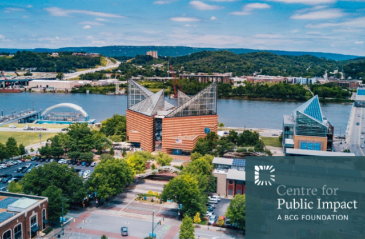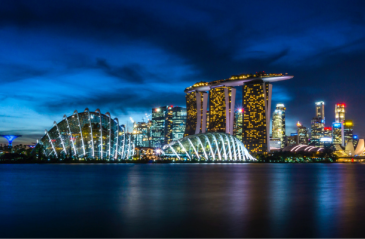
Lessons on digital equity: How the Singapore Government has been tackling the digital divide

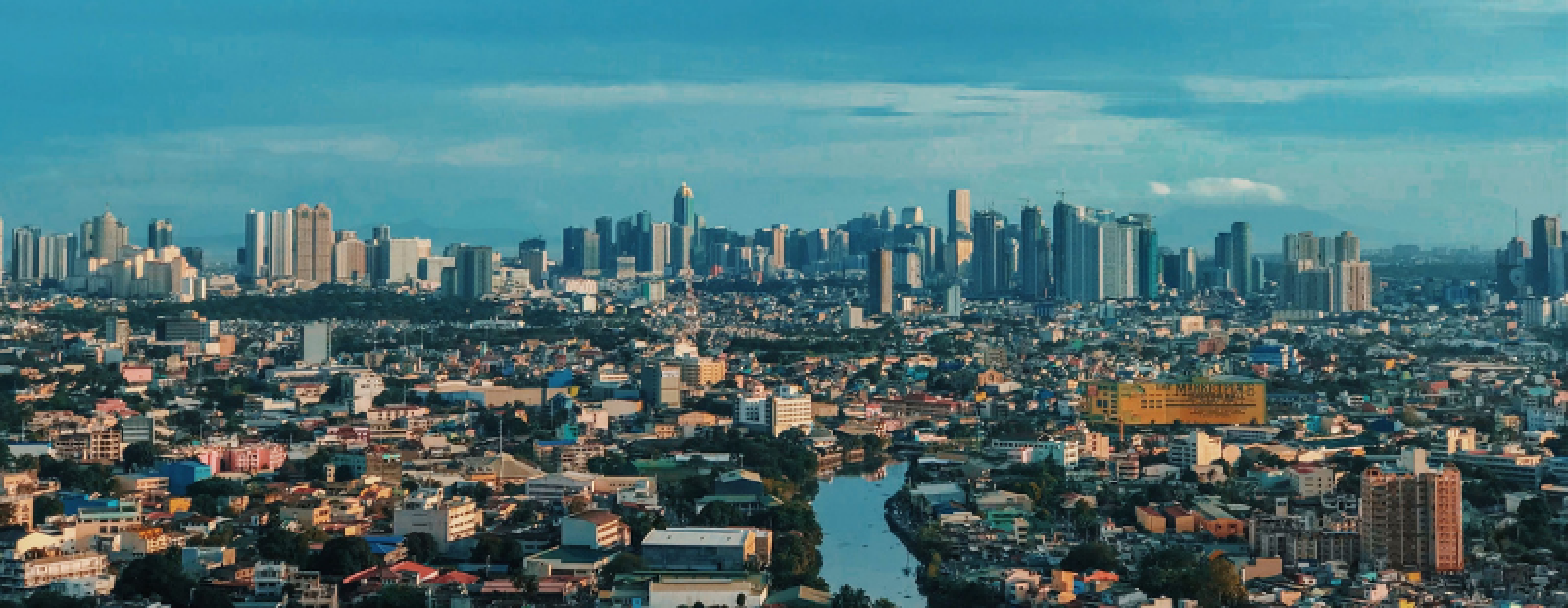
"Improving the relationship between people and government has long-term, exponential benefits for everyone through public scrutiny and involvement." Joy Dawis-Asuncion, Assistant City Administrator at the City of Manila
Share article.@gomanilaph bridges the #digitaldivide that marginalizes 350,000 underinvested residents by creating unique digital identities for everyone - whether they can access digital tools or not.
Share article"With the help of @BloombergDotOrg, using empathetic research and human-centred design, we have engaged +1000 underserved residents as co-creators in innovating @gomanilaph" Joy Dawis-Asuncion from the City of Manila
Share articleWe put our vision for government into practice through learning partner projects that align with our values and help reimagine government so that it works for everyone.
The Centre for Public Impact was proud to work alongside Bloomberg Philanthropies during the 2021 Global Mayors Challenge, which featured hundreds of cities around the world compete to develop government innovations to address challenges exacerbated by COVID-19. 50 Champion Cities progressed to the second phase of the Global Mayors Challenge, where they received hands-on coaching and technical assistance to help make their ideas a reality. This article showcases the story of Manila's efforts, as they sought to introduce data-driven governance to address the incredible challenges of delivering aid in the middle of a pandemic.
Manila is the capital, gateway and image of the Philippines to the world. It is the cradle of history, urban heritage, as well as the premier higher education knowledge hub of the country. However, decades of mismanagement, degraded infrastructure and depleted city coffers resulted in modern Manila becoming a petri dish of urbanization’s toughest challenges. Manila was ranked 103rd out of 140 global cities in a livability index. Despite being the world’s most densely populated city with 42,857 persons/km2, the City functions were all paper processed based on very limited and outdated data, policies, and practices.
This began to change in May 2019 when Francisco M. Domagoso, a 45 year-old young man who grew up in the city’s slums, was elected Manila’s mayor. His first act as mayor was signing Executive Order No. 1, upholding the public’s right to know and access government documents and proceedings. Improving the relationship between people and government has long-term, exponential benefits for everyone through public scrutiny and involvement.
Improving the relationship between people and government has long-term, exponential benefits for everyone through public scrutiny and involvement.
And then the pandemic happened. With Manila’s antiquated data from 2004, the problem of governing a city in lockdown with out of date information became a tremendous challenge. How does one govern a city without data in the best of times? How does one deliver critical life-saving services during pandemic when you don’t have a firm grasp on who lives where and how many you need to serve?
We planned for 350,000 households in Manila. Going house to house and counting individuals, we soon discovered that there were nearly 700,000 households in the city. This was critical data because Manila was bringing food and cash subsidies to every home under the pandemic lockdown.
As we begin to see a clearer picture of the data, we learned that the Mayor of Manila inherited a magnitude of underinvested residents consisting of 178,345 senior citizens, 27,172 persons with disabilities, 13,877 solo parents, 209,513 indigent youth, and three hundred thousand families in informal settlements in the six congressional districts of Manila.
Development policies and plans founded on limited data led to more problems. For more than three decades, Manila experienced inconsistency in government policies and development programs resulting to businesses leaving Manila, illegal structures proliferating, encroachment of public spaces, and unparalleled disorder leading to urban blight and decay.
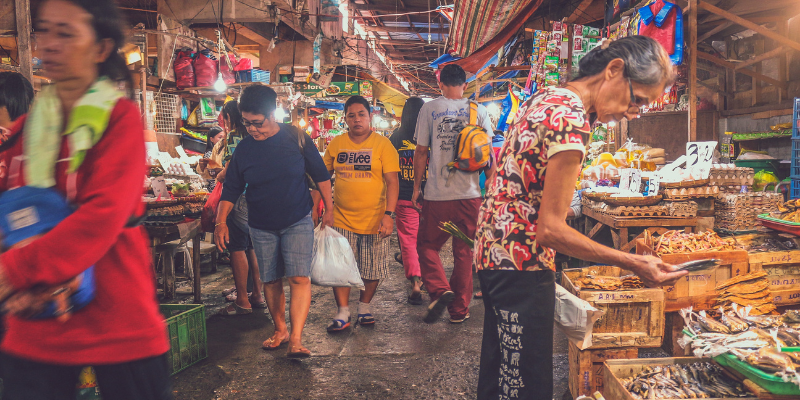
The Go! Manila platform is the first serious attempt in the city’s lifetime to build a data-based policy infrastructure and move the Philippine capital to a professional, open and transformative governance. This holistic digital infrastructure initiative ensures that the city’s land and human resources are efficiently utilized and that its constituency is effectively served.
The magnitude of the present challenge require reliable and updated data to guide the Local Chief Executive and his team in policy and decision making as well as programming the city’s land, human and financial resources. The Beta version of Go! Manila focused on securing the sources of income of the City by mainstreaming online payments of real property taxes and business taxes. This allowed tax collection without human intervention, which greatly reduced corruption. We realized that the data we would be able to collect was very limited and the potential for more is there.
Thus Go! Manila Version 2.0 was born.
Go! Manila became the first city-wide, digital data infrastructure for any Philippines city which has evolved from a business-oriented program for app-based tax payment and business registration into a platform addressing social inclusion. Social inclusion ties in to Manila’s long-term strategies around prevalent and persistent socio-economic issues on access to health, housing, education, employment and livelihood opportunities, and sustainable and resilient environment.
The Go! Manila platform is the first serious attempt in the city’s lifetime to build a data-based policy infrastructure and move the Philippine capital to a professional, open and transformative governance.
Go! Manila bridges the digital divide that marginalizes the 350,000 underinvested residents by creating unique digital identities for every resident – whether they can access digital tools or not. The program focuses on the socio-economically disadvantaged: 20% of Filipinos use analog mobile phones; 20% have neither analog or smart mobile phones; yet all are empowered through Go! Manila. This is unexpected and new to the city as it entails a concerted effort of the City Government staff, neighborhood leaders, civil society organizations and underinvested residents engaged as co-creators in designing this inclusive innovation. With 50,000 intermediaries, Go! Manila ensures that the underserved are accounted for and served.
The evolution of Go! Manila has been Herculean but rewarding. With the help of a Bloomberg Philanthropies designated coach, using empathetic research and human centered design approaches, we have engaged more than 1000 underserved/underinvested as co-creators in innovating Go! Manila. From the mock interviews to the testing of prototypes, FGDs and field interviews, improvement on both design and access became wide-ranging. Technology partners had several sessions with Team Manila to incorporate the co-creators’ inputs in the design that would address their needs and aspirations.
Hence, Go! Manila will provide every Manileños a unique digital identity and equal opportunities in accessing priority services daily. Go! Manila will inculcate a sense of belongingness, dignity and pride among Manila residents and converts their hope into concrete housing, health and employment projects. Imagine almost 1.8 million residents fully engaged into one ecosystem. And visualize 350,000 marginalized, vulnerable, and at-risk persons positively impacted on the first year. The problems on legitimacy and exclusion of the underinvested in the government programs will be reduced.
Imagine transforming the lives of the social amelioration program recipients including the senior citizens, PWDS, solo parents, indigent students, indigent household heads, and informal workers into productive residents provided with equal opportunities to have a decent housing, employment or livelihood thru Go! Manila.
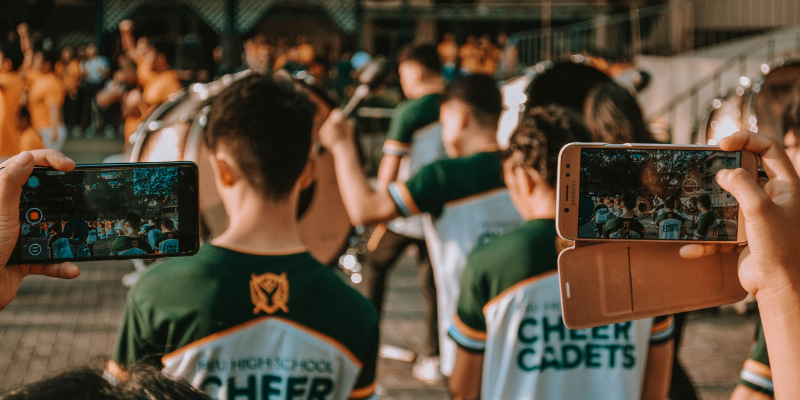
Mary Ann del Rosario, a solo parent co-creator, lives in a slum in Port Area, Manila. She has five children. She needs a job to provide for her family. While doing odd jobs, she would often eat only once daily. Her lack of identify made searching for real jobs impossible. Through Go! Manila, she was able to secure a Manila digital ID and she gained identity and legitimacy, was able to find a job in a food chain with USD 300/month income. She dreams of buying a mobile phone for her family so that she can access more government services.
This is just 1 of the 350K underinvested lives.
Problems with legitimacy, underinvestment/exclusion, the pandemic and economic recovery transcend city boundaries and are encountered by every city all over the Philippines and the rest of the world in varied forms. All 146 cities, 1,489 municipalities and 42,046 barangays (neighborhood councils) throughout the Philippine have a significant number of unregistered born individuals, families living below poverty line and at-risk individuals such as the senior citizens, persons with disabilities, indigent students, out-of-school youth and informal workers.
Based on the records of the Philippine Statistics Authority (PSA), 5 million Filipinos nationwide remained unregistered in 2019; 40% were children aged 0-14 years old. UNICEF (2019) estimated that 237 million children under age 5 worldwide currently do not have a birth certificate thus exposing them to violence, abuse and exploitation. Melvie M. Balorja, an informal settler of Barangay 275-Pasig Riverside, delivered her child in 2007 attended by a midwife at home who promised to register it but she passed. Today, her 14-year old child still has no birth registration record.
There are staggering statistics on the underserved Filipinos. The Philippine Statistics Authority reported that about 17.7 million Filipinos live in poverty in 2018. Senior citizens represent 7.52% or 8.2 million of the Philippines' 109 million population. Based on Department of Education (DepEd) data, close to 4 million students were not able to enroll for the current school year (2021-2022) due to Covid-19, poverty, family issues, or natural disasters.
The Informal Sector Survey (ISS) conducted in 2018 estimated the number of persons employed in the informal sector in the Philippines to be at 15.68 million. The ILO-CO Philippines also reported that in the Philippines, 38.3 percent of those employed are in vulnerable forms of employment which means nearly two out of five workers are less likely to have formal work arrangements and access to social protection and are more at risk during a crisis or shock. The change in employment conditions that was attributed by development experts to the pandemic resulted in the informal sector increasing by about 435,000. The International Labor Organization Country Office for the Philippines (January 2020) reported that almost 1 out of 5 youth (19.9%) are not in education, employment or training (NEET), with NEET rates higher for young women (25.7%) than for young men (14.4%), and more than 1 out of 5 youth (20.4%) in the extended youth labour force are in unemployment, time-related underemployment or the potential labour force.
Melvie M. Balorja, an informal settler of Barangay 275-Pasig Riverside, delivered her child in 2007 attended by a midwife at home who promised to register it but she passed. Today, her 14-year old child still has no birth registration record.
The result of a 2010 survey conducted by PSA stated that around 1.44 million or 1.57 percent of the 2010 population were disabled. The World Health Organizations has said that the high disability prevalence in developing countries will create adverse socioeconomic outcomes such as less education, poorer health outcomes, lower levels of employment, and higher poverty rates.
As we implement the Go! Manila, the adoption and uptake of residents in the ecosystem is slow compared to the number of projected registration. As we are introducing a new technology to replace traditional practices, we are encountering several challenges such as the lack of awareness among of residents, diversity in cultural beliefs and political orientation, lack of access to technology and resistance to innovation. We are addressing this by conducting an extensive Information and Education Campaign in 896 barangays at the grassroot level, and mandating the City Government departments, bureaus, offices, units, and CSO intermediaries to amplify the project.
Most of the data we have on the vulnerable and at-risk persons are data from the National offices. With Go! Manila, we are hoping to get a more granular data as we implement life-changing public service to every Manileño. This goal is very ambitious, arduous, and laborious but doable. Team Manila strongly believes that Go! Manila social innovation is scalable and transferable not only to other cities in the Philippines but also to the rest of the world with similar inclusion issues. This version of Go! Manila will still change and evolve but we are positive that this social innovation reducing inequalities and promoting social inclusion is already part of the city government’s DNA.





